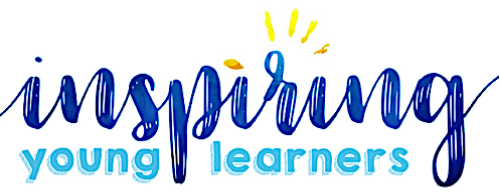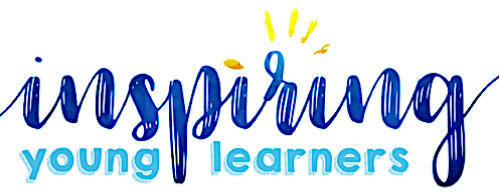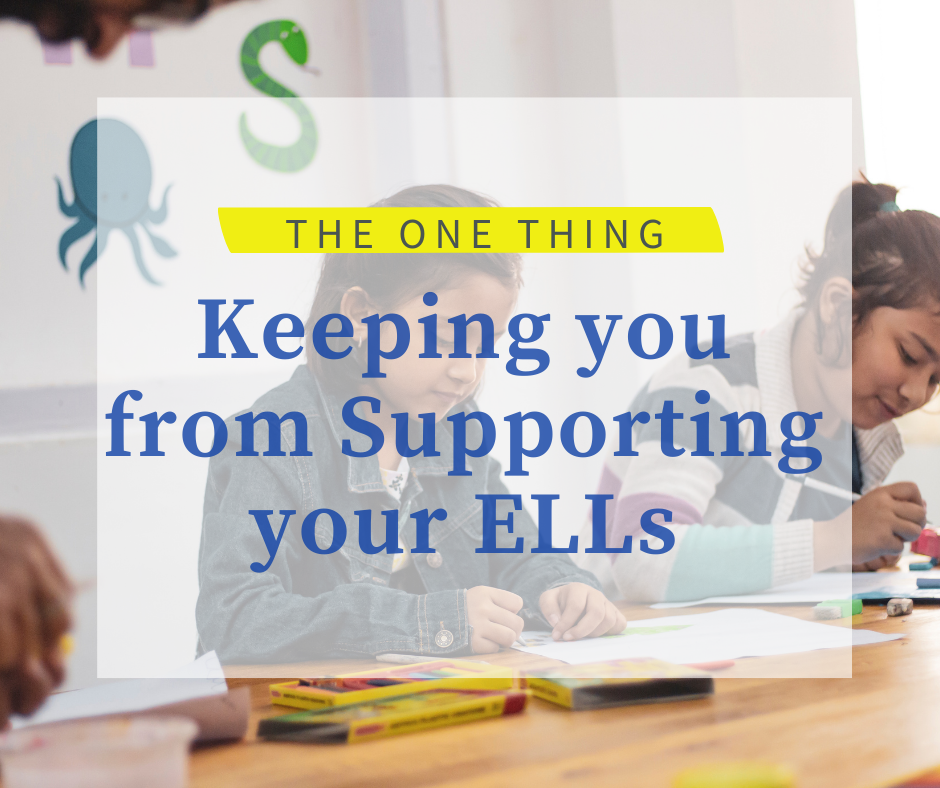Over the past few years, I have done a lot of research on what is preventing teachers from better supporting their ELLs.
There’s a lot to that question and a lot standing in the way of us being able to do what’s best to support our ELLs.
Here are just a few of the many hindrances we face:
-policies that aren’t appropriate
-too many students to support
-lack of training
-lack of curriculum and resources
This is just the start (I’m sure you can think of 20 more!)
Through the research, though, I found that one of the biggest reasons why ELLs are not getting the support that they need in the classroom is because of self-efficacy.
What does self-efficacy mean?
The definition of self-efficacy reflects confidence in the ability to exert control over one’s own motivation, behavior, and social environment. In other words, self-efficacy has to do with how confident you feel in being able to complete the task you have in front of you.
Ask yourself that question right now: How confident do you feel that the immediate needs of the ELLs in your classroom are being met?
I think many of us, even people who have worked with ELLs for a long time, don’t feel confident in meeting their needs. Why? Because ELLs are complex. You could have two newcomers enter your class at the same time. One newcomer could be from a background where they had great schooling and are very strong in their native language; supporting them will be a lot easier because of that. The other newcomer could be from an interrupted education, unable to read or write in their native language or come from a war-torn country or displaced family. Or all of the above!
Every ELL has a different story.
Every ELL has different needs to be met.
As teachers of ELLs, we sometimes allow the wide range of complexities that they bring into our classroom to make us feel that we are not able to support them, which shuts down our confidence right away. It’s apparent in the stress, overwhelm, and anxiety that we might feel in trying to help these kids get to grade level while supporting all the other students in our classrooms.
That’s why self-efficacy is the key to unlock the success of ELLs.
The more confident we feel in being able to meet the needs of our ELLs, the more success they’re going to have. And sometimes we might just need to muster up that confidence, even if we are overwhelmed with a new student we have or having a large percentage of ELLs in our classroom. We first need to believe that we are trained teachers: We know how to differentiate, we know how to keep our students’ needs at the center of it, and we can do it! That’s where it has to begin.
We also have to remind ourselves to go back to what is best for our students!
We in our gut as teachers know what our students need, and what is just wasting their time. Let’s help them succeed this year by saying no to time wasters and yes to lessons that engage them, allow them opportunities to think and apply what they are learning.
I promise, when you believe in yourself, you are going to see the stress and overwhelm begin to go away. Then you’ll be able to add in the research and the knowledge of what you need to specifically reach that one student that you’re having a hard time with or that student that’s coming with a background that you’re just not familiar with.
It all begins with having the confidence that you can do it.
You can do this and you will make a difference in those students’ lives when you believe that you have the power to do so. And what’s even better, is you are not alone. I’ll be here encouraging and helping you each step of the way!




One Comment
I absolutely love the opening quote in your email by Wayne Dyer! I have written it down and will make a poster – to go with a few other thought-provoking quotes I’ve hung in my ESL classroom to catch the attention of my students. I relate so closely to his words and I believe my ELs will too. I am feeling pretty confident so far in the lessons I have planned for my learners and your blog post helps me to solidify this feeling. Thank you for your supportive words!!